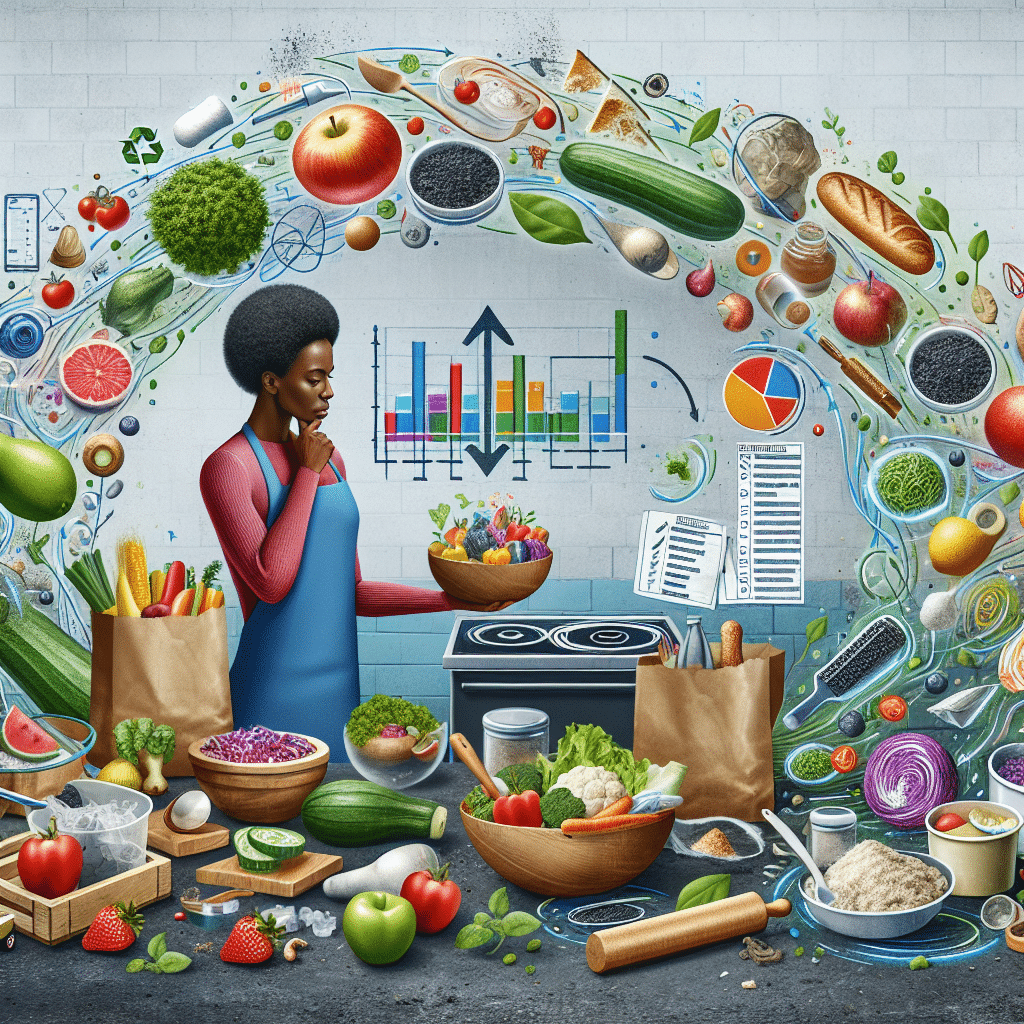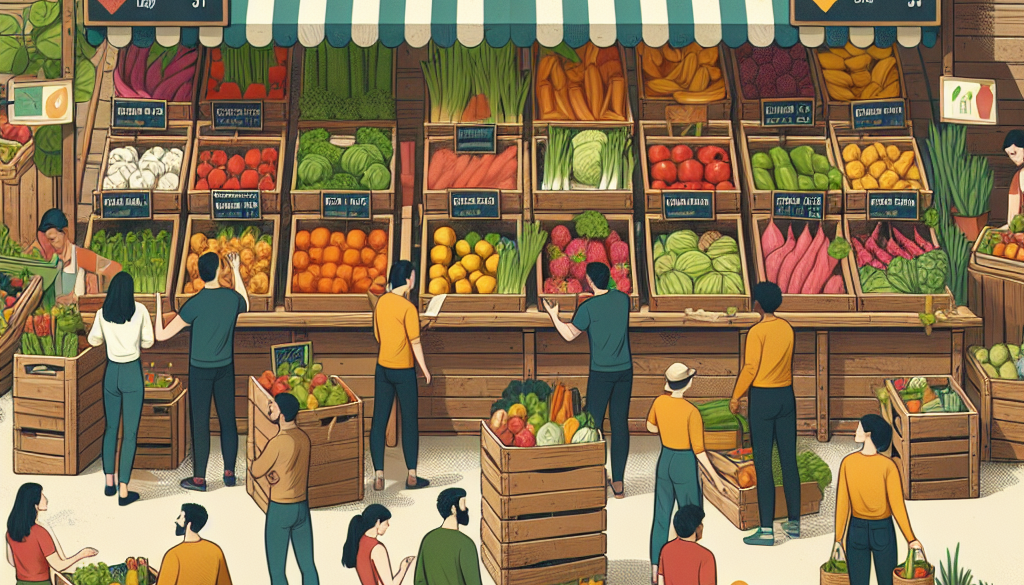Upcycled Ingredients, Nutrition, and Purchase Intent
-
Table of Contents
- Upcycled Ingredients: Revolutionizing Nutrition and Influencing Purchase Intent
- The Nutritional Value of Upcycled Ingredients
- Case Studies: Success Stories in Upcycling
- Consumer Attitudes and Purchase Intent
- Challenges and Considerations for Producers
- Conclusion: The Future of Food is Upcycled
- Discover ETprotein’s Sustainable Protein Products
Upcycled Ingredients: Revolutionizing Nutrition and Influencing Purchase Intent

In recent years, the concept of upcycling has taken the food industry by storm, offering an innovative approach to sustainability and nutrition. Upcycled ingredients are derived from byproducts or otherwise discarded elements of food production, transformed into valuable components for new food items. This practice not only reduces food waste but also contributes to the creation of nutrient-rich products. As consumers become more environmentally conscious, their purchase intent is increasingly influenced by the nutritional benefits and sustainability of upcycled ingredients.
The Nutritional Value of Upcycled Ingredients
Upcycled foods often come from nutrient-dense sources that were previously overlooked. For example, fruit pomace, the pulpy residue left after fruit has been juiced, is rich in fiber and antioxidants. Similarly, spent grains from the brewing industry are high in protein and dietary fiber. By harnessing these nutrient-rich byproducts, upcycled ingredients can enhance the nutritional profile of various food products.
- Fiber-rich upcycled ingredients can aid in digestion and help maintain a healthy gut microbiome.
- Antioxidant-packed upcycled ingredients contribute to reducing oxidative stress and inflammation in the body.
- Protein from upcycled sources supports muscle repair and growth, making it a valuable addition to sports nutrition products.
Case Studies: Success Stories in Upcycling
Several companies have successfully incorporated upcycled ingredients into their products, demonstrating the potential of this movement. For instance, ReGrained uses spent grain from beer production to create nutritious snack bars. Another example is The Coffee Cherry Co., which upcycles coffee fruit, the outer layer of the coffee bean, into a flour that is rich in fiber and antioxidants.
- ReGrained’s snack bars are not only high in fiber and protein but also contribute to reducing food waste in the brewing industry.
- The Coffee Cherry Co.’s flour provides a gluten-free alternative that adds a unique flavor and nutritional boost to baked goods.
Consumer Attitudes and Purchase Intent
As awareness of environmental issues grows, consumers are increasingly seeking products that align with their values. Upcycled ingredients resonate with shoppers who prioritize sustainability and health. A study by the Upcycled Food Association found that nearly 60% of consumers want to buy more upcycled food products due to their environmental benefits.
- Products with upcycled ingredients often carry a story of sustainability that appeals to eco-conscious consumers.
- Health-aware individuals are drawn to the enhanced nutritional profiles of upcycled food products.
- Upcycled ingredients can also offer unique flavors and textures, attracting adventurous eaters and foodies.
Challenges and Considerations for Producers
While upcycled ingredients offer numerous benefits, there are challenges that producers must navigate. Ensuring consistent supply, quality, and safety of byproducts is crucial. Additionally, educating consumers about the value of upcycled ingredients is essential for increasing market acceptance.
- Producers must establish reliable partnerships with suppliers of byproducts to maintain a steady stream of upcycled ingredients.
- Quality control measures are necessary to ensure that upcycled ingredients meet food safety standards.
- Marketing efforts should focus on informing consumers about the environmental and nutritional advantages of upcycled products.
Conclusion: The Future of Food is Upcycled
The integration of upcycled ingredients into the food industry represents a significant step towards a more sustainable and nutritious food system. By transforming byproducts into valuable food components, producers can reduce waste, enhance the nutritional value of their products, and cater to the evolving preferences of consumers. As the trend continues to grow, we can expect to see more innovative uses of upcycled ingredients, further influencing purchase intent and shaping the future of food.
Discover ETprotein’s Sustainable Protein Products
If you’re interested in incorporating high-quality, sustainable protein into your diet, consider exploring ETprotein’s range of organic bulk vegan proteins. Their products, including rice protein, pea protein, and various seed proteins, are characterized by a neutral taste, non-GMO, and allergen-free attributes. With L-(+)-Ergothioneine purity over 98%, ETprotein caters to a diverse range of industries, ensuring that you can find the perfect protein solution for your needs.
About ETprotein:
ETprotein, a reputable protein and L-(+)-Ergothioneine (EGT) Chinese factory manufacturer and supplier, is renowned for producing, stocking, exporting, and delivering the highest quality organic bulk vegan proteins and L-(+)-Ergothioneine. They include Organic rice protein, clear rice protein, pea protein, clear pea protein, watermelon seed protein, pumpkin seed protein, sunflower seed protein, mung bean protein, peanut protein, and L-(+)-Ergothioneine EGT Pharmaceutical grade, L-(+)-Ergothioneine EGT food grade, L-(+)-Ergothioneine EGT cosmetic grade, L-(+)-Ergothioneine EGT reference grade and L-(+)-Ergothioneine EGT standard. Their offerings, characterized by a neutral taste, non-GMO, allergen-free attributes, with L-(+)-Ergothioneine purity over 98%, 99%, cater to a diverse range of industries. They serve nutraceutical, pharmaceutical, cosmeceutical, veterinary, as well as food and beverage finished product distributors, traders, and manufacturers across Europe, USA, Canada, Australia, Thailand, Japan, Korea, Brazil, and Chile, among others.
ETprotein specialization includes exporting and delivering tailor-made protein powder and finished nutritional supplements. Their extensive product range covers sectors like Food and Beverage, Sports Nutrition, Weight Management, Dietary Supplements, Health and Wellness Products, and Infant Formula, ensuring comprehensive solutions to meet all your protein needs.
As a trusted company by leading global food and beverage brands and Fortune 500 companies, ETprotein reinforces China’s reputation in the global arena. For more information or to sample their products, please contact them and email sales(at)ETprotein.com today.












